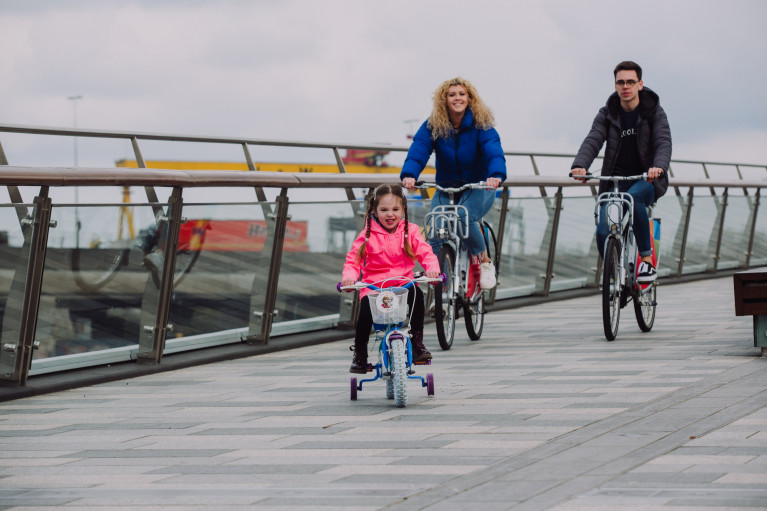Displaying items by tag: New: Maritime Mile
Miles Of Fun As 'Maritime' Mile Treasure Trail Launched in Belfast's Historic Waterfront
A new Maritime Mile Treasure Trail has been launched in Belfast Harbour bringing an exciting outdoor family experience aimed at encouraging locals and visitors to explore the city port's historic waterfront.
The joint initiative is between the Titanic Foundation and Belfast Harbour where the trail provides a waterfront experience for visitors to explore Belfast’s maritime & industrial heritage.
Titanic Foundation, the charity set up to preserve and promote Belfast’s maritime and industrial heritage including the development of Titanic Belfast, collaborated with Belfast Harbour on the trail. It was developed as part of the Foundation’s commitment to the development and promotion of Belfast’s iconic heritage waterfront as a seamless, accessible and vibrant destination for local people and visitors.
The treasure trail, which is available now until 6th November, is free!
There are 18 stops along Belfast’s iconic waterfront with questions, clues, facts and challenges all of which can be easily found on a series of information panels along the self-guided route.
There will be weekly prize draws as well as a main prize draw of a specially commissioned Maritime Mile painting by local artist and former Harland & Wolff employee Colin H. Davidson. There’s also a mini explorers version of the trail, with prizes also available. Everyone who completes the experience will get their very own Maritime Mile certificate.
For further information on the Maritime Mile Treasure Trail visit www.maritime-mile.com Follow Maritime Mile on Facebook and Instagram #MaritimeMile.





























































